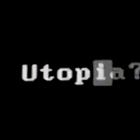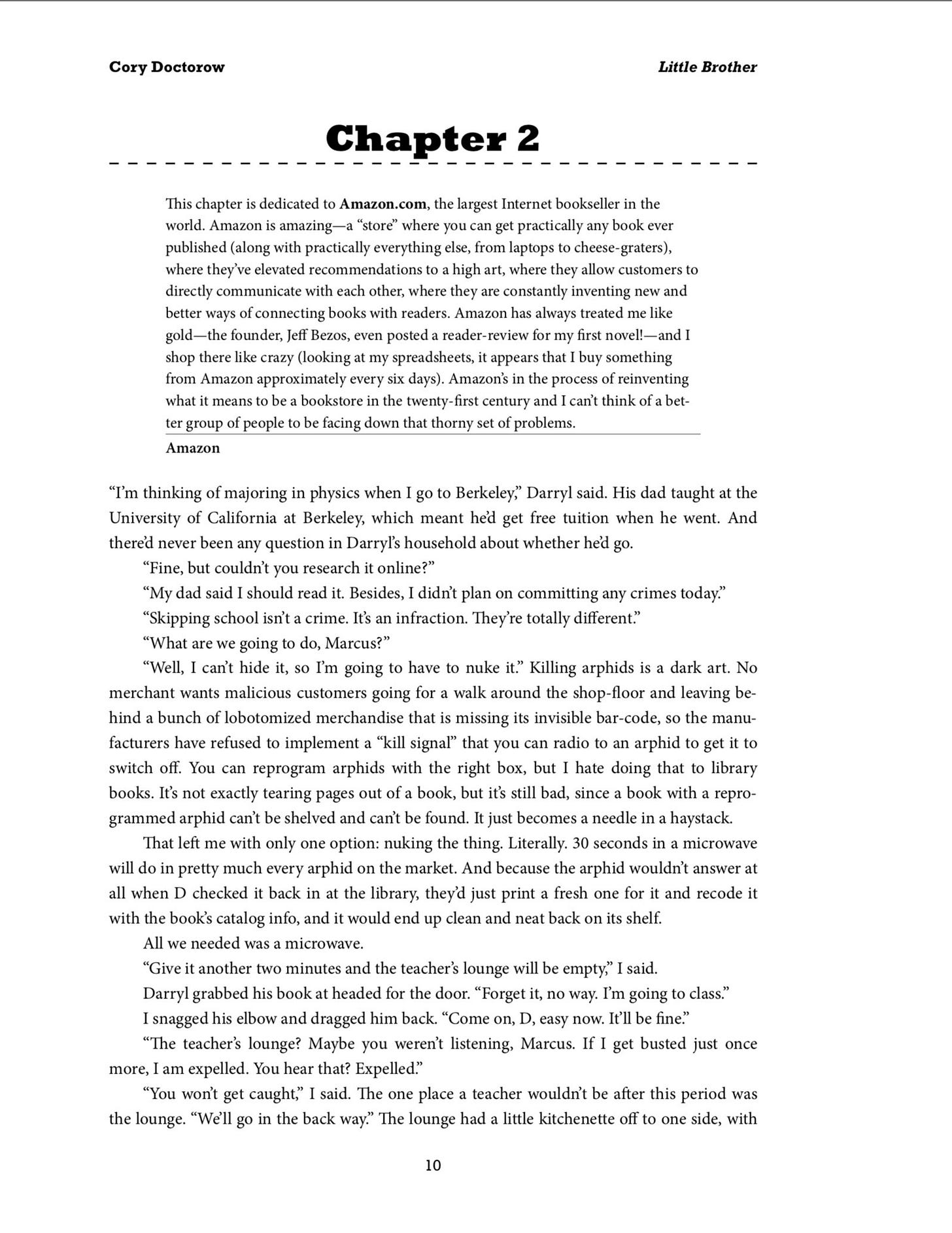Cory Doctorow is wrong about the internet
There was never a Garden of Eden.
Cory Doctorow recently published a book — Enshittification — about a process that we all see around us: the internet (and generally all services) getting worse and worse and worse, with value for the consumer decreasing and value for extractionary service monopolies rising to astronomical levels.
I’m glad that Jacob Bacharach reviewed the book because — glad because I was thinking of reading it to see what Cory’s narrative about the internet is all about…and now I don’t have to. And to be honest, given what I know of Cory’s ideological commitments to internet utopianism, I’m not surprised by Jacob’s critique of the book. As he points out, there is a fundamental problem with Cory’s view of the internet. It’s the pernicious idea that at some point early on in this technology, the internet was innocent and good, and it was only later that this utopian technology got corrupted by evil giant corps and evil giant govs. And what we need, according to Cory, is to return to this simple and naive age…the Internet Garden of Eden before the fall.
Here’s a bit from the New Republic review where Jacob addresses this part of Cory’s cosmology:
While Doctorow’s diagnoses are damning and infuriating, his prescription is tinged with a sentimental vision of what he calls, without apparent irony, “the old, good internet.” I am a decade younger than Doctorow, but was myself a fairly early adopter, and I understand this wistfulness. I, too, made friends in early chat rooms, explored my sexuality, engaged in debate, and adopted and discarded all sorts of strange politics and intellectual currents that I never would have otherwise encountered. I miss that internet, but would I go back? Could I?
“Lowering the barriers to entry for participation in digital life is an unalloyed good,” Doctorow writes. Simply: no. If anything, the opposite. License it like a car. Or a firearm. If there is anything that the past several decades have shown us, it is that “digital life”—access to tools of information and communication more powerful and universal than any heretofore invented or available—is something that most individuals, and perhaps even the most responsible among us, simply should not possess. Its capacity to enable demagoguery, to dissolve ideology, to promote conspiracy, and to encourage violence and antisocial behavior is wild and dangerous. Are corporate algorithms alone to blame? Perhaps, for your racist uncle, for your perpetually enraged hashtag-resistance aunt, for your Fox News dad, for your MSNBC mom. But for the disaffected young man, angry and future-deprived, lurking in some strange bespoke Discord channel or creating untranslatable racial slurs with which to bait his fellow gamers? Long before Elon Musk bought Twitter, before YouTube made celebrities out of “manosphere” pickup artists, before a Facebook group convinced your neighbor that vaccines cause autism, the internet proved a fertile ground for fervid weirdos to find each other and psych up strange beliefs.
No less so today, whether on Discord or one of the “chans” or deep within Reddit, where, far from any particular corporate algorithm, hate, bile, violence, and rage express themselves nonetheless. When the conservative influencer and organizer Charlie Kirk was shot dead in September and it was revealed that his killer had scrawled messages onto bullets, one of the more alarming aspects was not so much the question of the shooter’s political ideology, which dominated the news, but that the language—inscrutable, irony-poisoned gamer argot—came from online. I am increasingly convinced that giving most of us access to online is handing a toddler a gun. The problem is giving it to the toddler. But the problem, also, is that it is a gun.
Enshittification fundamentally is premised on the idea that we created a technological marvel (or a set of them), and then corporate greed and avarice ruined it. But what if that is not the case? What if, as was the case with nuclear weapons, we have created technology that we are not yet mature enough to wield? What if in our quest for infinite energy, we built a bomb?
As I keep repeating, the origin of the good/utopian/uncorrupted internet myth was concocted by Silicon Valley itself. The truth is that the internet was born not out of experimentation by some nerds in basements and garages who just wanted to build cool stuff that was useful for humanity. No, the internet was born out of desire for domination and for the concentration of power. It was born, very specifically, in the paranoid nuclear age when American technocrats fantasized of global control. They dreamed of making the entire world transparent and trackable — whether it was airplanes in the sky, Vietnamese peasants in the jungle, Chilean communists, or antiwar protesters in Chicago. The internet was created by the Pentagon inside the post-WWII America Empire. It was born as a weapon — and it remains a weapon today.
Has it gotten worse? Absolutely. But it was never pure. It was born in sin. There was never a Garden of Eden. And that’s why Cory is wrong — even if his general critique of the internet being made worse by the giant corporations that own it is correct. If you want to “fix” the internet and make it more democratic, you can’t just go back to the 1990s — you have to look at the very architecture of this technology and the larger consumerist-spectacle security state that created it. The technology and its architecture is a reflection of our society — and the 1990s of Cory’s youth that he so pines for were no utopian golden age that we should be hoping to return to. I guess what I’m really trying to say is that you can tell that Cory hasn’t internalized his Guy Debord…
And as longtime readers know, I’ve been a Cory Doctorow truther for a while now. He might be a soft critic of tech these days, but for the longest time he had been one of the most influential promoters of an unregulated internet. Many of Cory’s best-selling youth novels are basically fan fiction for Silicon Valley’s most libertarian ideas and organizations. And he’s long lent his name to Silicon Valley’s most effective astroturf/lobby group, the Electronic Frontier Foundation. This is an org that has pushed the interests of Silicon Valley at every step, fighting any regulation of tech by classifying it as totalitarianism and thus helping create the very enshittified Internet that Cory now laments. I wrote a big Baffler essay that touches on this whole sordid thing some years ago. It’s a perennial favorite.
—Yasha
PS: I thought I might be misremembering, but no, Cory did indeed promote Amazon — and Jeff Bezos!!! — in one of his early books. “Amazon’s in the process of reinventing what it means to be a bookstore in the twenty-first century and I can’t think of a better group of people to be facing down that thorny set of problems,” he wrote. Wonder why Bezos loves Cory’s novels so much? H’mmm…
Want to know more? Read my book Surveillance Valley (where Cory makes a very small appearance.)



In all fairness, Cory is definitely not promoting Amazon (or Google) any longer, given the language he sometimes uses about them. Some of his analyses, of the power of Big Tech and the need for anti-monopoly regulation and Lina Khan-style enforcement, are pretty good. Like Yasha, he has been pretty vocal about denouncing the genocide in Gaza and Biden's role in it, which should be something to be taken for granted - but isn't.
I think he's right about some things and wrong about others. I agree with his "right to tinker" agenda, though maybe not with the exaltation of "the hacker spirit" etc. Some of his political novellas, such as "Unauthorized Bread" and "The Masque of the Red Death" (from the collection "Radicalized") are actually very good.
But he's very much a child of the Silicon Valley culture. I also don't agree with his exaltation of the "old Internet". And I don't agree with him at all about what is needed in a future society if we are to handle climate change. He believes in the techno-optimist "abundance" or "post-scarcity" concept, that technology will make us so much smarter that we can have a fair, sustainable society and still maintain the same standard of living.
I don't see it. I think there's no way around reducing our standards of living in order to reduce emissions. I think his techno-optimism is sort of irresponsible in that way.
I criticized his book "Walkaway" for kinda-sorta promoting the impossible concept of "uploading your consciousness", which should be a joke but unfortunately isn't in today's Silicon Valley:
https://blogs.fsfe.org/agger/2021/12/05/cory-doctorows-walkaway-some-comments/
I find Cory's presentation of it sorta-kinda irresponsible given the currency it actually, and absurdly, has in tech circles.
At the time, I hadn't really latched on to the post-scarcity ideology that also permeates the book, yet. The Brit Aaron Bastani is also a proponent of that idea. I think it's a red herring, but then ...
Correct again. You are also correct when you state that the dissemination of correct information (such as this) doesn’t seem to mitigate the effect of “the spectacle.” Your and Evgenia’s thing on Seymour Hersh brought me right back to my own Quixotic attempts at changing the world through adversarial investigative journalism, which only managed to get me threatened and pigeonholed as an uncooperative malcontent. Which I am.